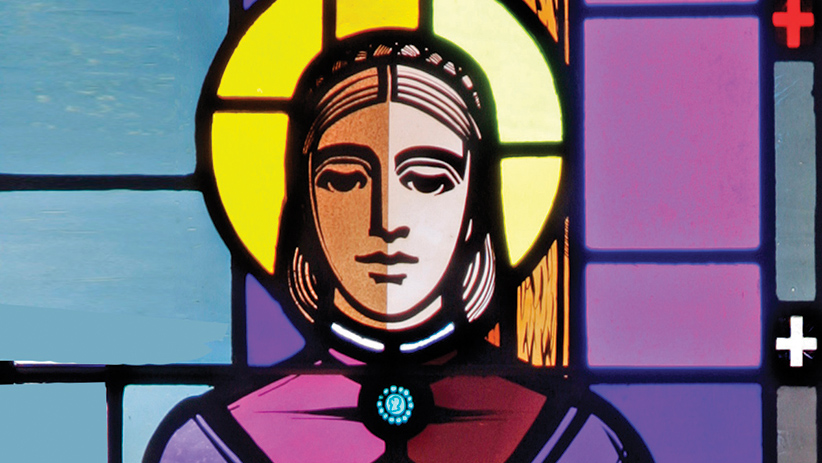Blessed Anna Maria Taigi exemplifies how someone can climb to the heights of mysticism and extraordinary holiness while living the vocation of a wife and mother.
Hailing from Siena, Italy, Taigi’s family moved to Rome when her pharmacist father needed to find employment after financial ruin. Poverty, although unchosen then, later in life would be embraced as one of her defining characteristics.
Unsure of her vocation as a young woman, Taigi considered religious life, but because she was too ambivalent to it, a confessor suggested marriage. Her future husband’s path crossed hers while both were engaged in service work in the homes of Italian nobility. Domenico Taigi was a rough and tumble man, prone to making life difficult for those around him in word and deed. And his wife got the brunt of his temperament. But Taigi softened him, showing love when least expected. A hardened heart almost assuredly will melt over time from love’s gentleness — such as an unwarranted smile. Taigi models how one takes seriously the marriage vows as a means to one’s own sanctification and growth in holiness.
This self-denial that Taigi became known for was not always what defined her. In the early years of their marriage, her life was marked by vanity and luxury. It has been disputed that she engaged in an adulterous affair.
But a conversion experience led Taigi to embrace a Gospel way of life that came to define her. Baptized the day after her birth, Taigi’s faith had not blossomed until after her marriage. A chance encounter with a priest in St. Peter’s Square prompted her to subsequently make a fruitful confession, in which Taigi renounced the life of mixed-up priorities she had been living. That night, Taigi had been moved by an inner voice that said God desired more from her. Her husband described years later how, as a first step in this new life, his wife “took to wearing the plainest possible clothes,” noting that, in obedience to her spouse, she asked for his consent. He gave it completely, he said, for he saw “she was entirely given to the love of God.”
All this had kept her from giving her all to Christ, which took place while in prayer before a crucifix. She heard Jesus ask from the cross, “What is your wish? To follow Jesus poor and naked and stripped of all, or to follow him in his triumph and glory? Which do you choose?” To which she replied, “I embrace the cross of my Jesus. I will carry it like him in pain and ignominy. I await at his hands triumph and glory in the hereafter.”
Single-minded dedication to Christ defined the rest of Taigi’s life, which was a constant display of the closeness to Christ she experienced in the sacraments and in those who sought him. She worked to serve Christ in the sick and poor as a Third Order Trinitarian while keeping up with the duties of a wife and mother. A gift of prophesying the future was the spiritual fruit of visions and ecstasies — all the more incredible that this came to an ordinary housewife, not the likes of a cloistered nun. Her prophetic abilities caused her to become sought after by many notable figures, including Napoleon’s mother and the pope.
Upon her death in 1837, the future St. Vincent Pallotti praised her holiness. This was reiterated by Venerable Bernardo Clausi who said, “If she is not in heaven, there is no room there for anybody.” She was beatified by Pope Benedict XV in 1920.
Her feast day is June 9.
Michael R. Heinlein is editor of Simply Catholic. Follow him on Twitter at @HeinleinMichael.

